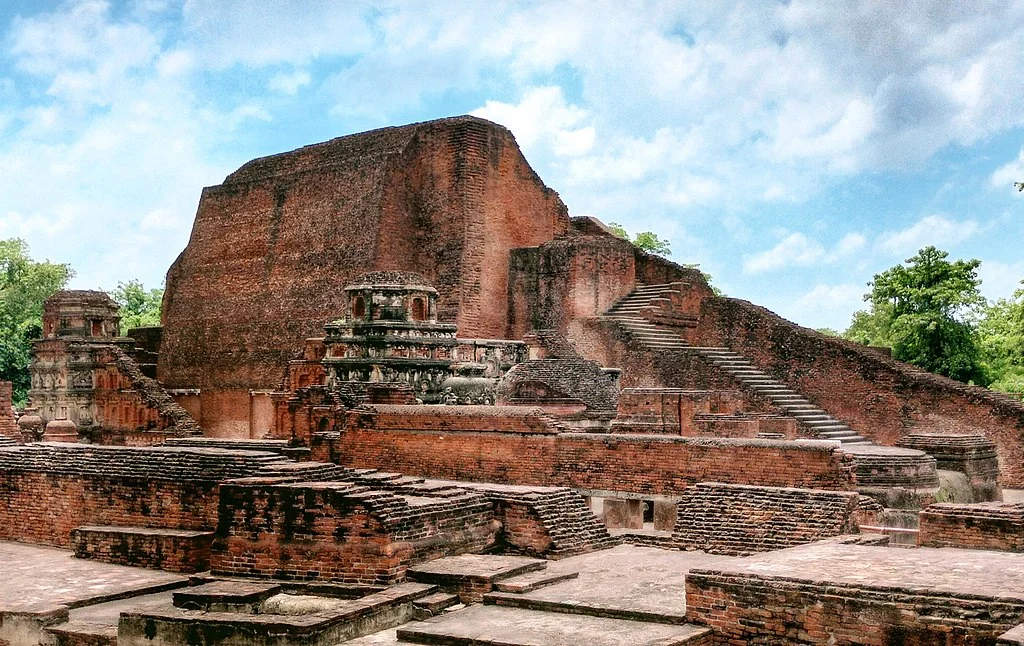Nalanda was a well-known mahavihara (Buddhist monastic college) in ancient Magadha (modern Bihar), eastern India. Considered by historians to be the world's first residential university and one of the greatest centers of learning in the ancient world, it was located near the city of Rajagriha (now Rajgir) and about 90 kilometers (56 mi) southeast of Pataliputra. (now Patna). Nalanda, which functioned from 427 to 1197 AD, played a crucial role in promoting patronage of the arts and scholars during the 5th and 6th centuries AD, a period that has since been explored by scholars.
Nalanda was established during the Gupta Empire era and was supported by numerous Indian and Javanese patrons – both Buddhists and non-Buddhists. Over some 750 years, its faculty included some of the most revered scholars of Mahayana Buddhism. Nalanda mahavihara taught six major Buddhist schools and philosophies such as Yogachara and Sarvastivada as well as subjects such as Vedas, grammar, medicine, logic, mathematics, astronomy and alchemy. The university was also a major source of the 657 Sanskrit texts carried by pilgrim Xuanzang and the 400 Sanskrit texts carried by Yijing to China in the 7th century, which influenced East Asian Buddhism. Many of the texts composed at Nalanda played an important role in the development of Mahayana and Vajrayana Buddhism including the Mahavairocana Tantra and the Bodhisattvacaryāvatāra of Shantideva. Nalanda may have been attacked and damaged by Muhammad Bakhtiyar Khalji, but it managed to remain operational for decades (or possibly even centuries) following the raids. It is a UNESCO World Heritage Site.

